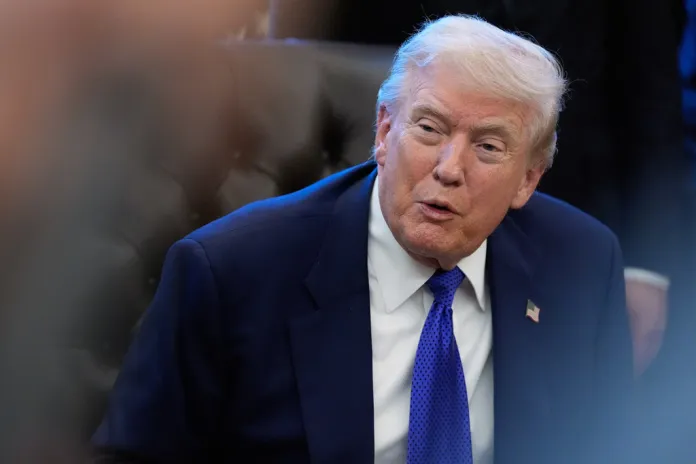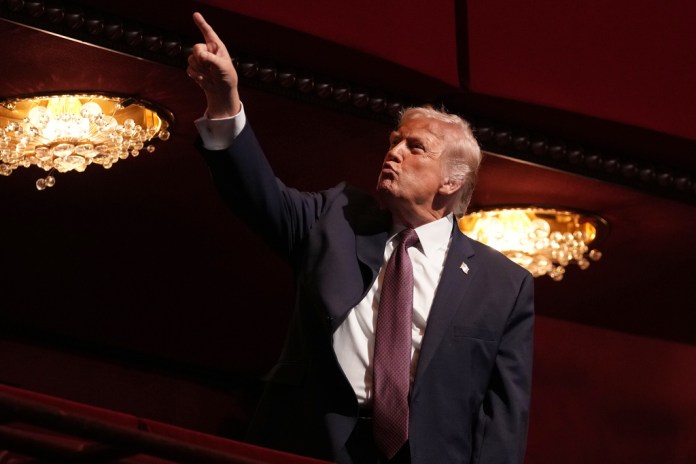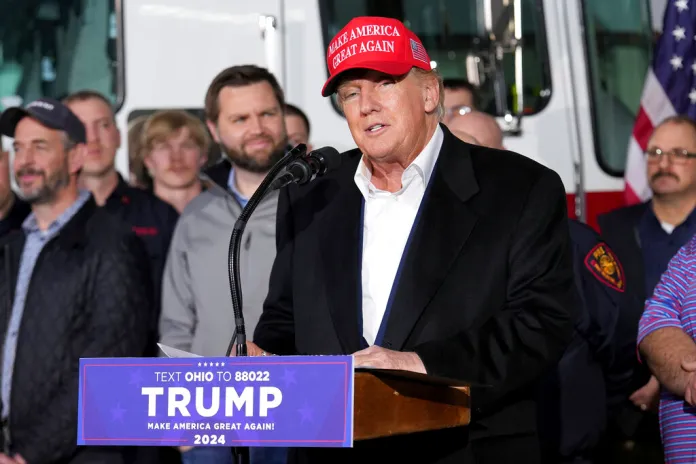Trump’s Tariffs Are A Global War On Slave Labor
The article discusses how China manages to sell low-priced products like toasters while maintaining profitability, attributing this to exploitation rather than innovation. It highlights former President Donald Trump’s stance against forced labor, particularly in the context of human rights abuses in China’s Xinjiang province, where Uyghur Muslims are detained in forced labor camps. On April 2, 2025, Trump declared “Liberation Day” and implemented tariffs on various foreign goods, aiming to protect American industries from exploitative practices fueled by cheap imports.
The article criticizes Democrats for opposing these measures while together agitating against genuine human rights violations. It notes that Trump’s tariffs are intended to punish countries profiting from forced labor, encouraging U.S. companies to adopt ethical labor practices. The piece argues that while American prices may rise temporarily due to these tariffs, the long-term benefit to human rights and domestic labor outweighs the short-term costs.Ultimately, trump’s approach seeks to prioritize ethical standards and American economic interests over the convenience of cheap foreign labor.
Have you ever wondered how China sells us a toaster for $30 and still makes a profit? Here’s the secret: It’s not innovation — it’s exploitation.
While global elites squawk about “free trade,” President Donald Trump has put his foot down and lifted the lid on what has let foreign nations eat our lunch: forced labor and modern-day slavery.
On April 2, 2025, Trump declared “Liberation Day” and imposed reciprocal tariffs on dozens of foreign countries, in part to stop America from turning a blind eye to countries that take advantage of the U.S. market by destroying domestic competition in favor of cheap imports. But Trump’s tariffs were not just economic, they were moral. Rather than relying on foreign countries, particularly China, that benefit from abusive labor practices, Trump put America first by deciding the U.S. must stop pretending inexpensive products come with no human cost.
Silent Genocide of Muslim Slaves in China
The Democrats, of course, lost their minds. The same cohort that spent Trump’s first term trying to smear the populist change-maker as a “racist” was outraged that he was doing something about real slavery.
During Trump’s first term, his administration repeatedly highlighted human rights abuses abroad, especially in regions like China’s Xinjiang province, where the Chinese Communist Party is running forced labor camps filled with Uyghur Muslims. More than a million Uyghurs and other Muslims have been detained by China and sent to reeducation camps in what is called the “Xinjiang Uyghur Autonomous Zone” for a range of reasons, including attending religious services, having more than three kids, or texting verses from the Quran.
China forced many of its religiously and ethnically targeted workforce to toil away in factories, making products distributed and sold across the globe. Muslim slaves in China produce countless store shelves worth of goods, according to the U.S. Department of Labor, such as textiles, hair products, and aluminum, among many other things. They get extremely low pay, can’t contact or visit their families (unless, in some circumstances, they are heavily surveilled by the government), and they can’t leave.
In June 2020, President Trump signed the Uyghur Human Rights Policy Act, a bill sponsored by then-Sen., now-Secretary of State, Marco Rubio. This legislation required the president to issue sanctions to hold China accountable for its human rights abuses. In one of its final acts, the first Trump administration said China was committing “genocide” against the Uyghurs and other Muslim populations, adding that Chinese officials were “engaged in the forced assimilation and eventual erasure of a vulnerable and religious minority group.”
Trump Tariffs Cut Off Slave Labor’s Lifeline
Trump’s tariffs are, in part, a continuation of his first term’s crackdown on China’s human rights violations. They are a way to penalize regimes and economies that tolerate or directly reap rewards from such heinous practices. By making imported goods from countries with poor labor records more expensive, tariffs could discourage U.S. companies and consumers from supporting exploitative supply chains. Tariffs could force companies to source materials and base manufacturing in locations with ethical labor standards, especially the U.S., while simultaneously pressuring offending governments to improve their treatment of workers.
Trump incensed the same Democrats who asked, “Who will pick the crops if we don’t have illegal immigrants?” The same people who pushed for open borders, celebrated Biden’s illegal migrant mayhem, and cheered when U.S. jobs were offshored to undercut American workers have no problem with slavery if it protects their positions of power. Just like the environmentalists who were all sunshine and rainbows about importing oil from other countries while preventing the use of American energy, anti-slavery “activists” have no issue with slavery if it is silent and out of sight.
For decades, D.C. politicians played patty-cake with hostile regimes that treated workers like disposable parts. And here’s the real kicker: The same people who scream about “equity” and “human rights” turn around and cry foul when Trump dares to start a “trade war” with real slaveholders. How dare Trump make their iPhones a little more expensive, they bemoan while calling Elon Musk and other administration officials “oligarchs” from the opposite side of their mouths.
How Much Does Freedom Cost?
Trump didn’t wait for approval from Ivy League economists to act on what should be common sense: You don’t compete with slave labor, you crush it.
Yes, U.S. prices may go up a bit in the short term. Maybe American girls will find two dolls under the Christmas tree instead of 30, as President Trump suggested Sunday on Meet the Press. Maybe U.S. students will sharpen five pencils instead of hoarding 250 like mini office supply tycoons. But maybe underpaid workers in China won’t have to literally slave away making those dolls or pencils for someone else’s kid in a distant Land of the Free.
President Trump believes temporary price fluctuations are a trade-off worth making in the interim, and he is doing what no other president had the guts to do. There is short-lived pain before lasting progress, and Trump is willing to take the heat now to put human rights and American prosperity over easy profits.
Julianna Frieman is a writer based in North Carolina. She got her bachelor’s degree in Political Science from the University of North Carolina at Charlotte. She is pursuing her master’s degree in Communications (Digital Strategy) at the University of Florida. Her work has been published by the Daily Caller, The American Spectator, and The Federalist. Follow her on X at @juliannafrieman.
" Conservative News Daily does not always share or support the views and opinions expressed here; they are just those of the writer."



